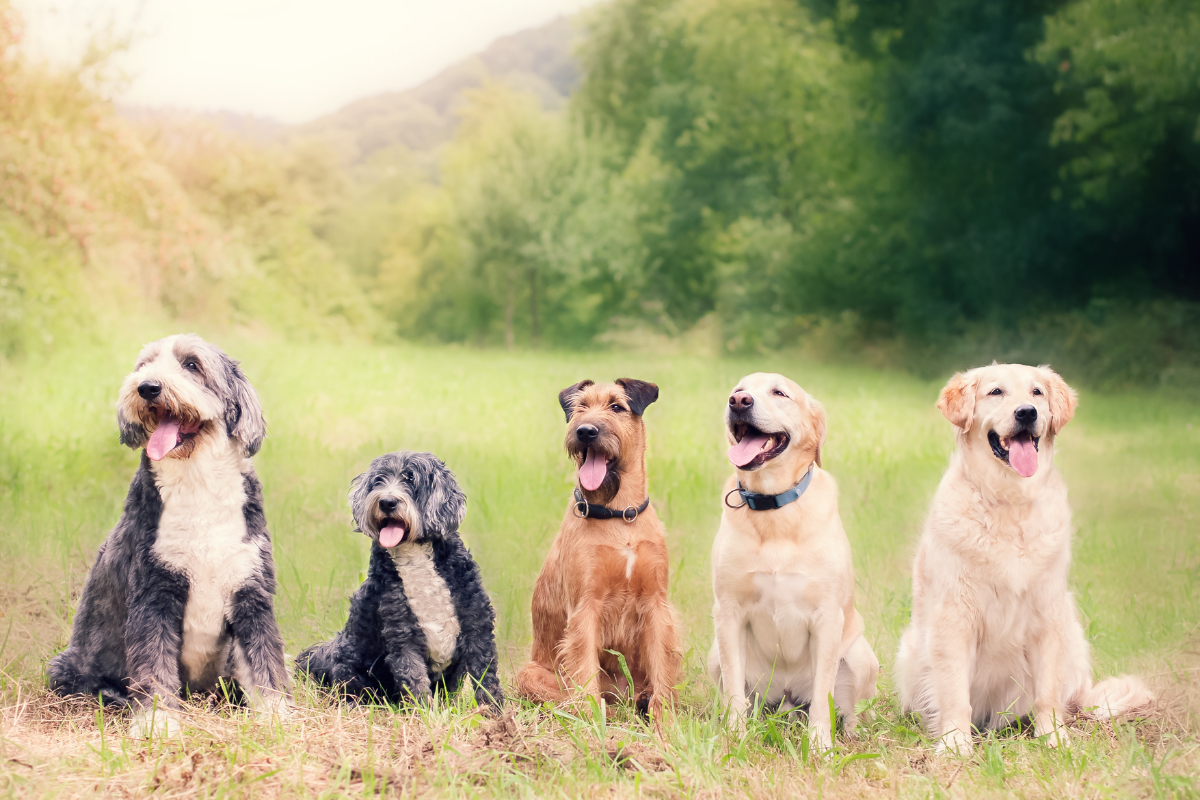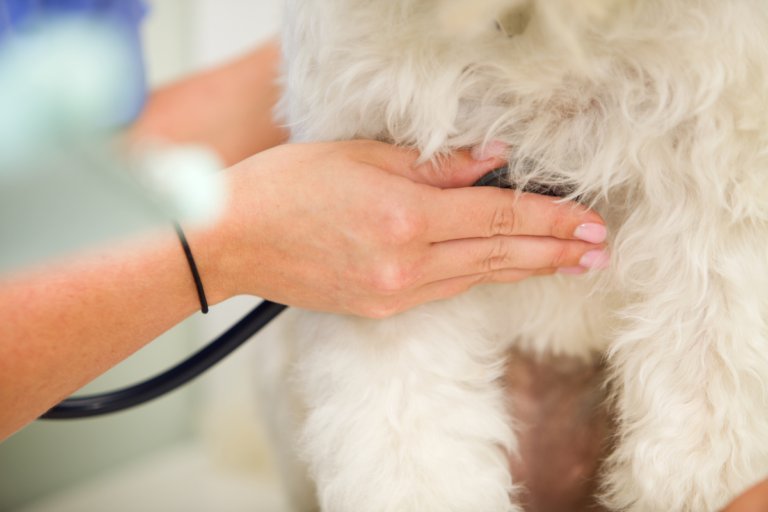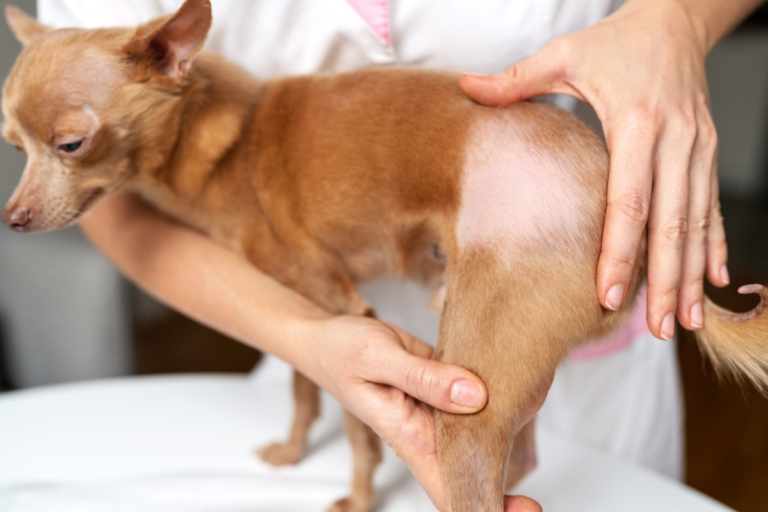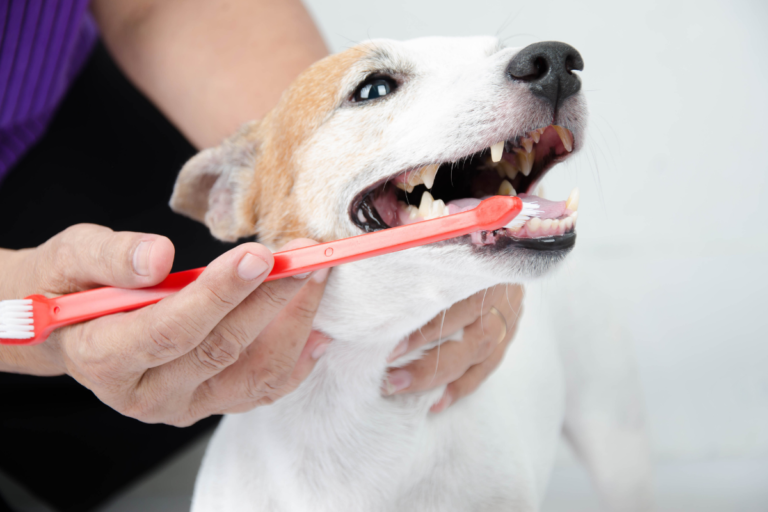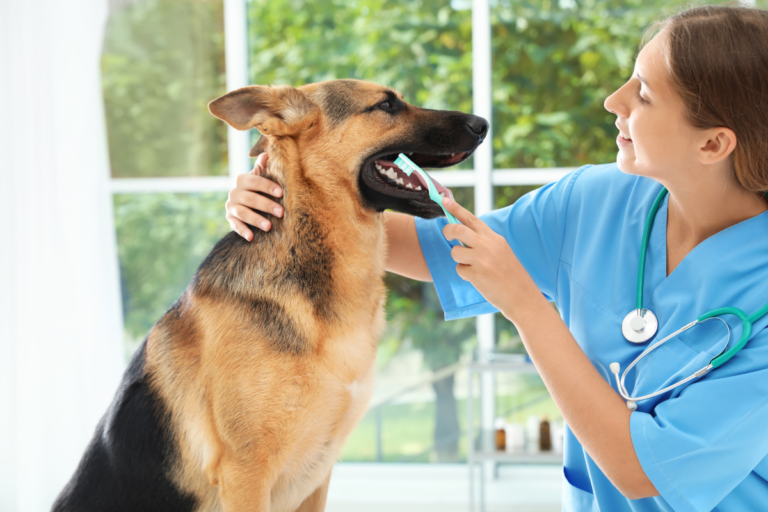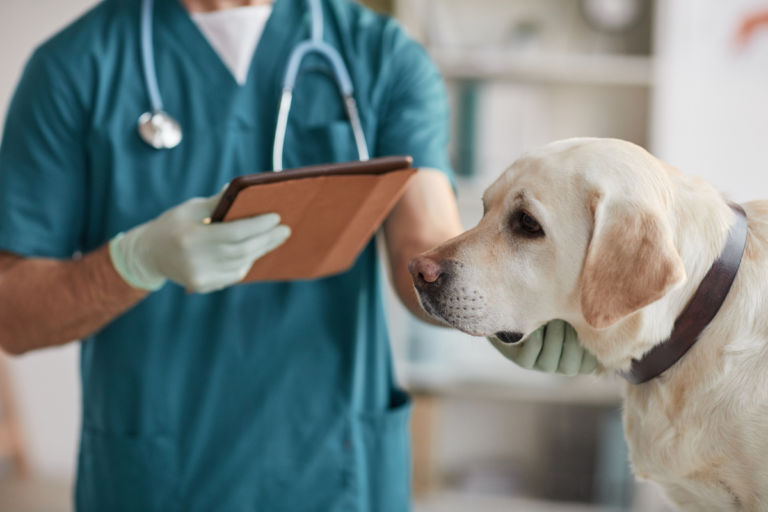Loyal Companions: Discover the Healthiest Dog Breeds
Dog Health Basics
Keeping our beloved pups in tip-top shape means we gotta stay savvy about their health. Let’s chew over the basics of dog health, from the common hiccups they might encounter in their everyday woof-life.
Understanding Dog Health
Dog health ain’t just about filling their bellies and letting ’em romp in the park. It involves tuning into their body, mind, and little doggy souls. Sure, good grub and plenty of play catch is vital, but knowing each pooch’s particular bite and bark—like how they use proteins and fats for energy better than carbs—is crucial to their health (VCA Hospitals). Plus, different doggy birthdays like those puppy dog eyes or wise old dog days need special food fuel (VCA Hospitals).
Here’s a peek at what’s on the menu through their years:
| Life Stage | Key Nutritional Focus |
|---|---|
| Puppy | High protein, energy-dense food |
| Adolescent | Balanced diet for growth |
| Adult | Maintenance diet with balanced nutrients |
| Senior | Lower calories, higher protein, omega-3s, glucosamine |
Common Health Issues
Our four-legged friends, just like us, might face some not-so-fun health stuff. Knowing what might come gives us a head start to keep the vet visits non-emergency.
Parasites: Those pesky ticks and fleas love hitching a ride on our fur buddies. A good scrub down and some prevention magic keeps them at bay. Sniff out more in our reads on dogs and ticks and symptoms of ticks in dogs.
Infectious Diseases: Our furry pals can catch stuff like canine flu or parvovirus. Shots are our secret weapon. Make sure the vet keeps those vaccination cards hot off the press (AVMA).
Heartworms: These things are no joke. A pill a month can keep this nasty critter away.
Dental Issues: Doggy breath shouldn’t knock us out. Brush those chompers and don’t skip the vet dentist (canine dental). Bite into more on dog gum disease and periodontal disease in dogs.
Metabolic and Genetic Disorders: Our Dachshund buddies may have some back aches or German Shepherds might not groove on hip stuff (german shepherd hip dysplasia and dachshund health problems).
Obesity: A chunky pup can lead to health blues, like diabetes or heart aches. Keep ’em moving and munching right (overweight dog).
Bloat: When their tummy’s in trouble, don’t dilly-dally. Know your bloat symptoms in dogs.
Here’s a quick fire list of doggy health potholes and how to dodge ’em:
| Health Issue | Preventive Measure |
|---|---|
| Parasites | Regular grooming, preventive treatments |
| Infectious Diseases | Vaccinations |
| Heartworms | Preventive medication |
| Dental Problems | Regular brushing, dental check-ups |
| Obesity | Balanced diet, regular exercise |
Keeping these things in our mental doggy bag could lead to waggy tails and slobbery kisses. For more scoops, sniff out our reads on the healthiest dog breeds, dog diseases, and dog nutrition.
Healthiest Dog Breeds
Let’s chat about some of the strongest, healthiest dog breeds out there. We’re diving into the world of Australian Cattle Dogs, Chihuahuas, and Poodles. These furry pals are known for their vibrant health and peppy natures, giving them a leg up in the well-being department.
Australian Cattle Dog
These guys are like the superheroes of the dog world! Australian Cattle Dogs have energy for days and a brain to match. They usually dodge most health hurdles, sticking around for a good long time. If you’ve got one, make sure they’ve got loads of room to roam and exercises to keep their tails wagging.
| Traits | Description |
|---|---|
| Typical Lifespan | 12-16 years |
| Common Health Issues | Mainly hip dysplasia but not much else |
| Exercise Needs | Through the roof |
These lively pups thrive when they’re busy, so keeping them entertained is key. Check out more tricks for keeping these dynamo dogs in top shape over at our healthy hounds section.
Chihuahuas
Chihuahuas pack a whole lot of life into their petite bodies, often outliving many other breeds. They’re a feisty bunch — loyal, snappy, and smart. But just like with kids, you’ve gotta make sure they don’t snack too much, or they might start packing extra pounds.
| Traits | Description |
|---|---|
| Typical Lifespan | 14-18 years |
| Common Health Issues | Watch those teeth and joints |
| Exercise Needs | Just a moderate amount |
Stay a step ahead with our tips on dodging dog gum disease and dental disease in dogs for your little sidekick.
Poodles
Poodles — whether you prefer them Standard, Miniature, or Toy — are clever, loving, and a breeze to train. They tend to lead healthy lives with only occasional vet visits. Families adore them, and they’re even cool with other pets.
| Traits | Description |
|---|---|
| Typical Lifespan | 12-15 years |
| Common Health Issues | Sometimes hip or eye trouble |
| Exercise Needs | Somewhere between moderate and high |
Their amiable nature makes them welcome guests anywhere. Swing by to read up on keeping hip dysplasia at bay, along with other bigger dog joint quirks.
Understanding these breeds’ quirks and health needs means you’ll be rocking the pet parent gig. Pop over to our sections on dog diseases and symptoms and most healthy dog breeds for more paw-some tips on keeping your pup’s tail wagging.
Active and Energetic Breeds
For those of us who love hanging out in the great outdoors and breaking a sweat, picking the right breed can be all sorts of fun! These doggos aren’t just bundles of joy, but they crave energy-charged adventures. So, let’s talk about some lively furballs: Siberian Huskies, American Foxhounds, and Golden Retrievers.
Siberian Huskies
These little fluff balls are known for being a mix of brainy and super friendly. Just think of them as fur-covered energy drinks! They have a will as iron-strong as their muscles and love a good run or challenge to keep from bouncing off the walls. Plus, they love being around people, so you get a buddy who’s always up for a hangout.
Health-wise, they’re usually pretty robust, but some can develop eye troubles like cataracts early on (PetMD). Keeping up with vet visits and feeding them right can help ward off these hiccups.
Got health queries? Check these out:
- Dogs teeth
- Symptoms of ticks in dogs
- Dog gum disease
American Foxhound
Chasing foxes was their thing back in the day, so, as you might guess, American Foxhounds have energy levels through the roof. They’ll live a decent stretch, around 11–13 years, and are absolute sweethearts with their humans and other animals. It’s always fun with them around!
These guys need their daily exercise, whether it’s a jog, hike, or a doggy sport. Keeping their health in check with regular vet trips and good chow will keep them bouncing happily along (PetMD).
Look up more health deets:
- Dog diseases and symptoms
- Female dog bladder infection symptoms
- Canine dental
Golden Retrievers
Golden Retrievers are basically the golden child of the dog world. They’re sharp and love being in on the action. Their roots are in sports, which means they’re keen on staying busy with their bodies and brains. Families love them because they’re just so easy to train and love.
Though they’re typically healthy, they aren’t immune to issues like hip troubles or heart conditions such as Dilated Cardiomyopathy (DCM) (Countryside Veterinary Services). Keeping them on their toes, along with regular vet visits, ensures they stay in tip-top shape.
| Breed | Average Lifespan | Common Health Issues |
|---|---|---|
| Siberian Husky | 12-15 years | Cataracts, Hip Dysplasia |
| American Foxhound | 11-13 years | Hip Dysplasia, Ear Infections |
| Golden Retriever | 10-12 years | Hip Dysplasia, Dilated Cardiomyopathy |
More health insight right here:
- Bloat symptoms dog
- Symptoms of addisons disease in dogs
- Golden retriever health problems
Knowing what these lively doggos need and the bumps they might hit health-wise helps us give them the love and care they deserve. Get clued up on the healthiest dog breeds and more with our go-to guides and info-packed resources.
Intelligent and Agile Breeds
We’re all about finding the perfect furry sidekick, and choosing a pooch that’s both brainy and brawny sure hits the spot.
Australian Shepherds
These lively furballs are famous for being sharp thinkers and true all-rounders. Bred for herding, they’re like Swiss Army knives in the dog world, tackling roles in agility, obedience, and even joining rescue missions. To keep them from chewing up your shoes, give them plenty of games and challenges to keep their minds and bodies busy.
Key Characteristics:
- Where They’re From: U.S. of A
- How Long They Hang Around: 12-15 years
- Health Quirks: Watch out for hips that don’t lie (hip dysplasia), epilepsy, wonky eyes
- Buzz Level: Through the roof
| Health Metric | Australian Shepherds |
|---|---|
| Lifespan (years) | 12-15 |
| Common Health Issues | Hip dysplasia, epilepsy, eye conditions |
German Shepherds
These Alsatians may have started herding sheep, but they’ve moved on to bigger things like police work and search and rescue, thanks to their smarts and loyalty. Bursting with energy, they’re always up for action but keep an eye out for those dodgy hips (German Shepherd Hip Dysplasia).
Notable Traits:
- Hometown: Germany
- Expected to Stick Around: 9-13 years
- Health Hiccups: Hip issues, a bit of a wobble (degenerative myelopathy), elbow related oppsies
- Energy Levels: Rocket high
| Health Metric | German Shepherds |
|---|---|
| Lifespan (years) | 9-13 |
| Common Health Issues | Hip dysplasia, degenerative myelopathy, elbow dysplasia |
Fetch more deets at our german shepherd health page.
Border Collies
Border Collies have a rep for being the Einsteins of the dog park. With laser focus and sky-high energy levels, they excel in herding and dog sports. Keeping them entertained with puzzles and physical activity is crucial to stop them from redecorating your home in their own creative style.
Key Attributes:
- Birthplace: United Kingdom
- Life Expectancy: 12-15 years
- Common Bumps in the Road: Hip dysplasia, retina troubles, epilepsy
- Energy Tier: Off the charts!
| Health Metric | Border Collies |
|---|---|
| Lifespan (years) | 12-15 |
| Common Health Issues | Hip dysplasia, progressive retinal atrophy, epilepsy |
Let these whip-smart pooches stretch their legs with exercise and engage their brains with tasks to keep their tails wagging. Offering a well-rounded diet and keeping up with the vet can help dodge those pesky health hitches.
All three are top picks for folks ready for a fun ride with active pups full of life. Keeping up with their health needs and creating a vibrant environment ensures a happy, healthy life. For a deeper dive into health quirks, check out our guides to dog diseases, dogs teeth, and health mutts.
Behavioral Traits and Genetics
Alright, so we’re talking about our cute, tail-wagging pals and what makes ’em tick. They can be a real bundle of surprises and sometimes, it’s all about their genes and their living conditions. Knowing the what and why can really help us take care of our doggos better.
Dog Behavior Genetics
Genes! They’ve got a big say in how your dog behaves, but it’s not a straightforward story. Scientists poked around 2,155 dog genes and chatted with 18,385 dog owners to discover 11 specific genetic spots linked to doggo behavior (Broad Institute). That means the quirky personalities we see today have deep roots way before we started pairing different breeds.
Turns out, your dog’s personality cocktail is mixed with both genes and their experiences in the wild world. This makes it kinda tough to mold behavior just through breeding. Purebreds are only a bit different than their mutt friends when it comes to behavior. So, breed alone? Not the biggest clue to what’s going on in their heads (Broad Institute).
Here’s something to chew on: breed matters for only 9% of their behavior (Broad Institute). What’s more game-changing are their surroundings, individual genes, how old they are, and even if they’re a he or she.
| Factor | Contribution to Behavior |
|---|---|
| Breed | 9% |
| Environment | Major |
| Individual Genetics | Major |
| Age | Big time |
| Sex | Big time |
Figures courtesy Broad Institute
Environmental Influences
While genes lay the groundwork, how and where a pup grows up really colors their world. Like us, dogs are a product of their surroundings and what they get up to.
Social skills, how they’re trained, and even the general vibe of their home life can seriously steer their behavior. Those early days? Yeah, super key. Good interactions and training when they’re just little fluffballs can set them up nicely.
Physical health and local conditions play a big role too. For example, what you dish out at mealtime can completely affect their mood and get-up-and-go. Feeding them the right stuff for their growing phase helps cultivate a mellow, healthy pooch.
Curious about certain health quirks for specific breeds and how they link to behavior? Head over to our breed-specific health conditions section.
To wrap it all up, doggo behavior is a heady mix of genes and the world they chill in. They’ve got their genetic coat, but it’s their lived experiences that paint the full picture. This really drives home why giving them well-rounded care is so key. Curious about what makes your dog’s mood tick? Dive into our dog diseases and symptoms guide.
These insights reflect our dedication to giving you top-notch advice to keep your pets in the lap of health and cheer. For more scoop on how genes and lifestyle shape your pup, check out our piece on genetics and dog behavior.
Nutrition and Breed-Specific Health
When it comes to our dogs, knowing their unique dietary needs and health quirks is like having a secret weapon to keep them wagging. Let’s break down what our pups need in their kibble bowl and watch out for any health hiccups our four-legged buddies might have.
Nutritional Needs by Life Stage
Just like us, dogs do have changing menu needs at different life stages. From speedy puppies to lounging seniors, each doggo stage requires a special selection of nutrients to stay in tip-top shape.
Puppies
Puppies are like little eating machines, needing a whole bunch of protein, fats, and vitamins as they grow faster than a teen wolf. Here’s a peek at what their food report card might look like:
| Nutrient | How Much They Need |
|---|---|
| Protein | 22% – 32% |
| Fat | 10% – 25% |
| Calcium | 1% – 1.8% |
Adults
Once our furballs hit adulthood, they need a grown-up menu that keeps them energetic and healthy without overheating their systems:
| Nutrient | How Much They Need |
|---|---|
| Protein | 18% – 25% |
| Fat | 5% – 10% |
| Fiber | 1% – 5% |
Seniors
For the senior tail waggers, it’s all about keeping those calories in check, upping the fiber game, and maybe adding a few joint-friendly supplements:
| Nutrient | How Much They Need |
|---|---|
| Protein | 18% – 25% |
| Fat | 5% – 10% |
| Fiber | 3% – 5% |
Want to dig in more? Check out our breed-specific health conditions page.
Breed-Specific Health Conditions
Different breeds, different needs — and some come with a few extra health surprises. You know what they say about an ounce of prevention, right?.
Large Breeds
- Hip Dysplasia
- Big dogs like German Shepherds, Labs, and Golden Retrievers can get the hip blues.
- Trouble in the hips can lead to arthritis later.
- Keep them trim, add joint help, and don’t skip playtime.
- Dilated Cardiomyopathy (DCM)
- Heartbreakers like Dobermans, Boxers, and Great Danes are prone.
- Heart muscles weaken, which is a no-go for their ticker.
- Get those hearts checked, step in early, and balance that diet.
Got a big guy? Here’s more on german shepherd hip dysplasia and dog heart disease.
Small Breeds
- Intervertebral Disc Disease (IVDD)
- Little champs like Dachshunds, Beagles, and Corgis know this pain.
- Spinal discs wear out and it can even take ’em off their paws.
- Exercise right, watch their weight, and keep an eye on their spines.
- Brachycephalic Respiratory Syndrome
- Flat-faced cuties like Bulldogs, Pugs, and Shih Tzus face breathing battles.
- Airway anatomy can make breathing tough stuff for them.
- Keep their weight right and avoid hot or chilly adventures.
Peek at more for breeds like shih tzu health problems or explore all dog diseases and symptoms.
Giving our dogs the best care means understanding their chow needs and watching for breed-specific issues. Regular vet trips, balanced eats, and the right exercise make sure they’re happy and healthy. Looking for more doggy deets? We’ve got the scoop on dog illnesses and checking out the most healthy dog breeds.
